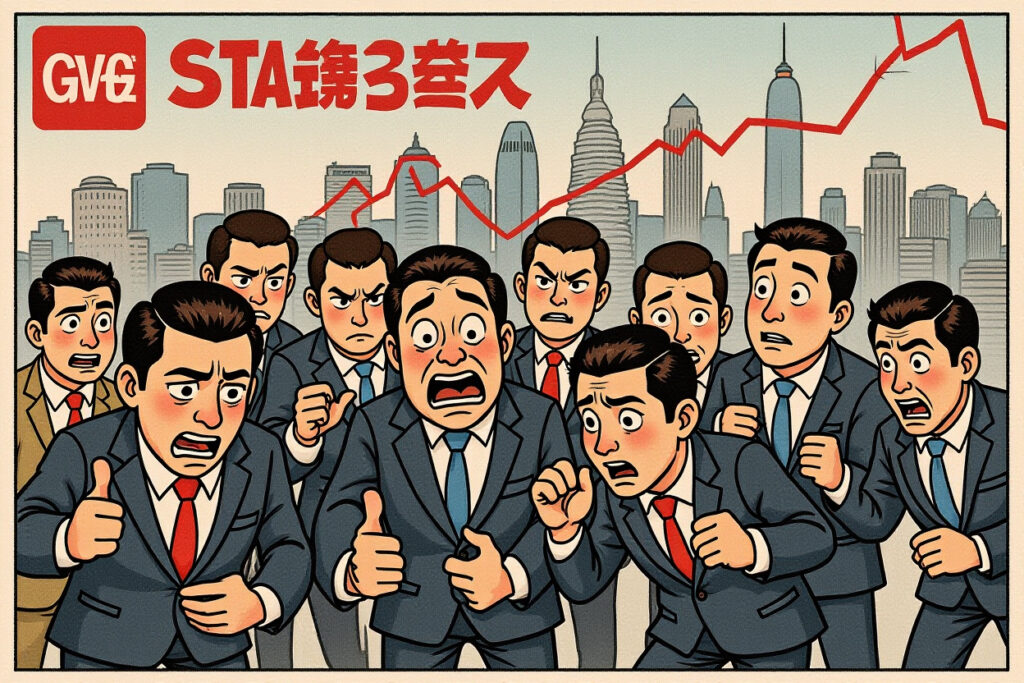A sudden shift in market sentiment has caught many Chinese stock investors off guard. Just as optimism began returning to the A-share market, a prominent voice known for accurately predicting previous downturns has emerged with a sobering warning that could signal turbulent times ahead for China’s equities.
• A leading market analyst known as the ‘A-share whistleblower’ has issued a critical warning about shifting sentiment
• Historical patterns suggest the current optimism might be premature despite recent gains
• Regulatory changes and global economic factors continue to create uncertainty for Chinese stocks
• Retail investors should prepare for potential volatility despite short-term positive indicators
• The warning highlights the psychological factors that often drive A-share market movements
Understanding the A-Share Whistleblower Phenomenon
The term ‘A-share whistleblower’ has gained traction among Chinese investors referring to analysts who have consistently accurately predicted market turns. These individuals have built credibility by calling major market movements, often going against prevailing sentiment. Their latest warnings come at a time when many investors were beginning to feel optimistic about the market’s direction.
This abrupt sentiment shift warning isn’t the first from these analysts, but it might be the most timely given current market conditions. Their analysis typically combines technical indicators, fundamental analysis, and an understanding of market psychology that often gets overlooked by mainstream analysts.
Historical Accuracy of Previous Warnings
The credibility of these market watchers stems from their previous successful predictions. During the 2015 market crash, several now-prominent whistleblowers had warned about excessive leverage and valuation concerns months before the collapse. Similarly, in early 2018, they cautioned about trade war impacts before most analysts recognized the potential severity.
Their methodology often involves looking beyond surface-level indicators to understand deeper market dynamics. This includes monitoring margin trading levels, analyzing retail investor behavior patterns, and tracking regulatory changes that might affect market liquidity.
The Current Market Context
Chinese stocks have experienced significant volatility throughout 2023, with the Shanghai Composite Index showing unpredictable movements. Recent weeks had seen renewed optimism driven by policy support signals and better-than-expected economic data. However, this abrupt sentiment shift warning suggests that underlying weaknesses might still pose significant risks.
Several factors contribute to the current fragile market environment. The property sector continues facing challenges, while consumer spending hasn’t recovered as strongly as hoped. International capital flows remain unpredictable, and regulatory uncertainties persist in several sectors including technology and education.
Technical Indicators Raising Concerns
Market technicians point to several concerning patterns despite recent gains. Trading volumes during rallies have been inconsistent, suggesting lack of broad participation. Additionally, certain market breadth indicators show narrowing leadership, with gains concentrated in fewer stocks than would be healthy for a sustained advance.
The volatility index for Chinese stocks has remained elevated even during recent calm periods, indicating underlying nervousness among professional traders. These technical factors combined create an environment where an abrupt sentiment shift becomes increasingly possible.
Psychological Factors Driving Market Sentiment
Market psychology plays an crucial role in A-share movements, often more so than in more developed markets. Chinese retail investors comprise a significant portion of daily trading volume, and their herd behavior can create dramatic swings. The current environment shows classic signs of optimism becoming too widespread too quickly.
Behavioral finance research indicates that investors tend to become overconfident after short periods of success, potentially setting up for disappointment. The whistleblower’s warning emphasizes that this psychological dynamic might be developing currently, making the market vulnerable to an abrupt sentiment shift.
Retail Investor Behavior Patterns
Data from trading platforms shows increased retail participation in recent weeks, particularly in speculative sectors. Margin trading balances have climbed, and new account openings have accelerated. While these indicate returning interest, they also represent potential vulnerability if market conditions change suddenly.
Historical patterns show that retail investors often enter markets near short-term peaks, influenced by recent performance rather than forward-looking analysis. This tendency contributes to the conditions that can precipitate an abrupt sentiment shift when reality fails to meet expectations.
Regulatory Environment Considerations
China’s regulatory approach continues evolving, creating both opportunities and challenges for investors. Recent months have seen more supportive policies toward capital markets, but the whistleblower’s analysis suggests that regulatory normalization might proceed unevenly across sectors.
The technology sector particularly illustrates this dynamic. While regulatory pressures have eased from their peak, the fundamental relationship between tech companies and regulators has permanently changed. Investors must understand that the old valuation models might no longer apply in this new environment.
Policy Support Limitations
Government support measures have provided market stability, but they have limitations. Policy tools can cushion downturns but cannot eliminate market cycles entirely. The whistleblower’s warning emphasizes that investors should not become over-reliant on policy support preventing normal market corrections.
Recent history shows that policy interventions often change the timing of market movements rather than eliminating them entirely. This creates conditions where pent-up selling pressure can emerge suddenly, causing an abrupt sentiment shift when least expected.
Global Economic Interconnections
China’s stock market doesn’t operate in isolation from global developments. Federal Reserve policy, international trade flows, and geopolitical tensions all influence A-share performance. Currently, several international factors could contribute to an abrupt sentiment shift in Chinese markets.
The U.S.-China relationship remains complex with ongoing trade and technology tensions. Meanwhile, global inflation patterns and central bank responses create cross-border capital flow uncertainties. These international dynamics add layers of complexity to domestic market analysis.
Foreign Investment Flows
Northbound trading data shows foreign investors have been inconsistent participants in recent rallies. While some days show strong buying, other sessions see significant outflows. This pattern suggests international money remains cautious about Chinese equities despite attractive valuations.
The whistleblower’s analysis notes that foreign investors often lead rather than follow market movements, making their cautious stance particularly noteworthy. If international money remains hesitant, it could limit the sustainability of any market advance.
Risk Management Strategies for Current Conditions
Given the potential for abrupt sentiment shift, investors should review their risk management approaches. Position sizing becomes particularly important in unpredictable environments. Diversification across sectors and market caps can help reduce vulnerability to sudden market moves.
Stop-loss orders and hedging strategies warrant consideration despite their costs. Historical analysis shows that during periods of potential sentiment reversal, traditional buy-and-hold strategies often underperform more active risk management approaches.
Sector Selection Considerations
Some sectors show more resilience to sentiment shifts than others. Defensive sectors including utilities and consumer staples typically weather market volatility better than cyclical industries. However, overconcentration in any area creates its own risks in unpredictable markets.
The whistleblower’s analysis suggests that recent outperformers might be most vulnerable to sentiment reversal. sectors that have led the recent advance, particularly those driven by speculative interest, could experience the sharpest declines if sentiment shifts abruptly.
Long-Term Perspective Amid Short-Term Uncertainty
Despite near-term warning signs, China’s long-term economic trajectory remains promising. Demographic challenges exist, but technological advancement and productivity growth continue. Investors should balance short-term caution with long-term optimism appropriate to their investment horizons.
Market history shows that periods of concern often create attractive entry points for long-term investors. However, timing these opportunities requires patience and discipline. The current environment might offer such opportunities if an abrupt sentiment shift creates market dislocation.
Historical Patterns of Market Recovery
Chinese stocks have experienced numerous cycles of optimism and pessimism throughout their history. Each recovery has begun when sentiment reached extreme negative levels, often coinciding with compelling valuations. While timing these turning points proves difficult, recognizing the patterns can help investors maintain perspective.
The whistleblower’s current warning might eventually mark such a turning point, though likely after further market weakness. Historical analysis suggests that the most accurate market predictors often appear premature before being proven correct.
Market participants should heed the warning about potential abrupt sentiment shift while maintaining perspective about long-term opportunities. Risk management becomes paramount during such periods, with position sizing and diversification offering protection against unexpected market moves. Investors should review their portfolios for vulnerability to sentiment-driven declines while identifying potential opportunities that might emerge from market dislocation.
Stay informed about market developments through reliable sources and consider consulting with financial professionals about adapting strategies to current conditions. The market will eventually provide clarity, but preparing for various scenarios remains the most prudent approach during uncertain times.




